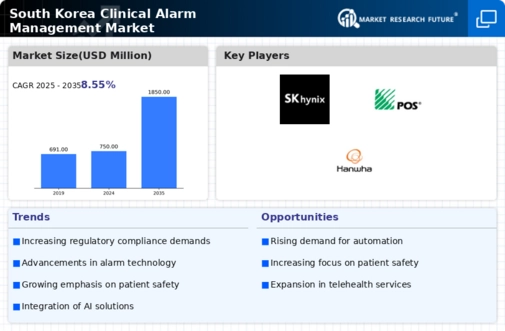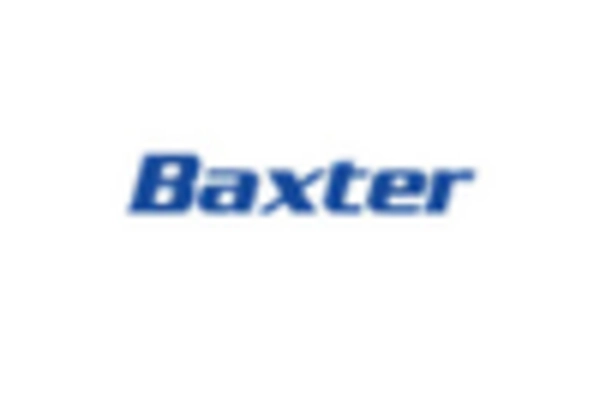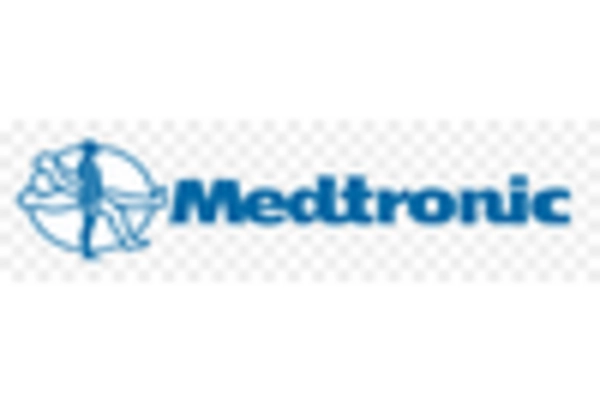Growing Regulatory Pressures
Regulatory bodies in South Korea are placing greater emphasis on alarm management protocols, which is driving the clinical alarm-management market. Compliance with these regulations is essential for healthcare facilities to avoid penalties and ensure patient safety. As regulations evolve, hospitals are compelled to invest in advanced alarm management solutions that meet these standards. This trend is likely to result in a market expansion, with an estimated growth of 9% over the next few years. The clinical alarm-management market is thus responding to the increasing need for compliance and safety in healthcare settings.
Increased Focus on Healthcare Efficiency
The drive for improved operational efficiency in healthcare facilities is a key factor influencing the clinical alarm-management market. South Korean hospitals are increasingly recognizing the need to streamline processes and reduce costs associated with alarm management. By implementing more sophisticated alarm systems, healthcare providers can enhance workflow efficiency and reduce the time spent responding to non-critical alarms. This focus on efficiency is projected to contribute to a market growth rate of around 8% in the coming years. The clinical alarm-management market is therefore becoming a critical component in the quest for operational excellence in healthcare.
Rising Demand for Patient Safety Solutions
The increasing emphasis on patient safety within healthcare facilities drives the clinical alarm-management market. In South Korea, hospitals are prioritizing the reduction of alarm fatigue among healthcare professionals, which can lead to critical oversights. As a result, the market is projected to grow at a CAGR of approximately 10% over the next five years. This growth is fueled by the need for effective alarm systems that minimize false alarms while ensuring timely responses to genuine alerts. The clinical alarm-management market is thus becoming essential for enhancing patient outcomes and operational efficiency in healthcare settings.
Technological Advancements in Alarm Systems
Innovations in alarm technology are significantly impacting the clinical alarm-management market. The integration of artificial intelligence and machine learning into alarm systems allows for more accurate monitoring and prioritization of alerts. In South Korea, the adoption of these advanced technologies is expected to increase, as healthcare providers seek to improve alarm responsiveness and reduce unnecessary alarms. This trend is likely to enhance the overall effectiveness of clinical alarm systems, making them indispensable tools in modern healthcare environments. The clinical alarm-management market is thus positioned for substantial growth as these technologies become more prevalent.
Aging Population and Chronic Disease Management
The aging population in South Korea is contributing to a rise in chronic diseases, which in turn is impacting the clinical alarm-management market. As the number of patients requiring continuous monitoring increases, healthcare facilities are compelled to adopt more sophisticated alarm systems to manage these patients effectively. This demographic shift is expected to drive market growth, with projections indicating a potential increase of 7% in the coming years. The clinical alarm-management market is therefore becoming increasingly vital in addressing the challenges posed by an aging population and the associated healthcare demands.

















Leave a Comment